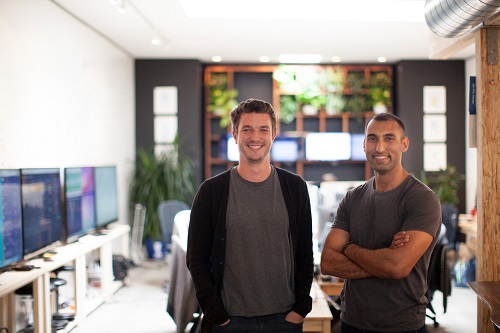
In 2011, former school teacher Sam Chaudhary and Liam Don attended a weekend gathering of entrepreneurs in Cambridge, United Kingdom which discussed how to improve best practice for teachers and learning outcomes for children.
They agreed that despite improvements in education technology, one critical area that many schools continue to struggle with is classroom communication.
After exchanging some inspiring ideas, they submitted the idea for a classroom communication app called ClassDojo to the first cohort of ImagineK12 – a Y-combinator program and funding for education start-ups.
Chaudhary and Don then moved to Palo Alto in California to officially launch the app, and within a year it had been adopted by 3.5 million teachers and students in more than 30 countries.
In Australia, the app is used in over 50% of primary schools to facilitate the sharing reports between parents and teachers. Its gamification style system allows teachers to enhance students’ developmental skills through real-time feedback.
Surveys from the company have found that 91% of teachers feel that their classrooms are more positive places, and 80% of parents feel more connected to their children, since using the app.
“While it might sound obvious to some, education isn’t a product, and it’s not like building a ship; education is an experience that needs to be created every day by teachers and school leaders,” Chaudhary told The Educator.
“We realised that to help educators improve these experiences for children, and for each other, the approach had to be on a whole-of-school level. After all, it takes large teams for all the moving parts of a school to function smoothly.”
Chaudhary said this point is not lost on principals, who as former teachers themselves, understand the challenges in maintaining a cohesive and harmonious environment.
“At the end of the day, principals just want good things to happen in their school. However, getting this done can often be a difficult and lonely process,” he said.
“One thing we’ve seen since the app has been adopted in schools is that the process of building a positive and inclusive culture has been made easier. This is because the process starts organically at the classroom level, rather than from the top down. Kids choose habits and skills they want to build and then share this feedback.”
Another critical area seeing improvement, says Chaudhary, is the building of school communities.
“ClassDojo helps schools and families to connect on a deeper level by keeping them on the same page and making them feel like a team,” he said.
Reports have shown that the role of parents as partners in their child’s learning journey has a critical impact on student learning and achievement.
Recognising this, ClassDojo is currently in the process rolling out its first paid for ad-on feature, Beyond School, which creates feedback points between parents and their children for the habits and skills they want to build. It then gives positive encouragement when those habits and skills are seen in action.
Beyond School, which is currently being rolled out in the US, is expected to launch in Australia later this year.
Chaudhary said the resource helps build “a foundation of trust and community between schools and families” and bridge critical gaps in understanding around what happens in classrooms on a daily basis.
“If parents were previously engaged in their child’s learning once every three months at a parent-teacher meeting, this app means they can now share the small but important moments that make up their child’s day at school,” he said.
“This can facilitate hours of valuable conversations in which parents and their children can participate in daily reflections about gratitude, set goals as a family to enhance respect and cohesion and create positive values that might not have existed before.
“For teachers, rather than having mountains of paperwork to do after school to engage with families, they can now share one photo with parents that can lead to hours of conversation between the parent and their child at home.”
Sue Stevenson, a Year 1 teacher in Queensland, said ClassDojo was “by far the best thing” she has encountered in her 36 years of teaching.
“The ClassDojo experiences on growth mindset, empathy, and mindfulness have had a tremendous impact for my students,” Stevenson said.
“We have a shared language for our classroom we wouldn’t have otherwise, and our families love it too.”


